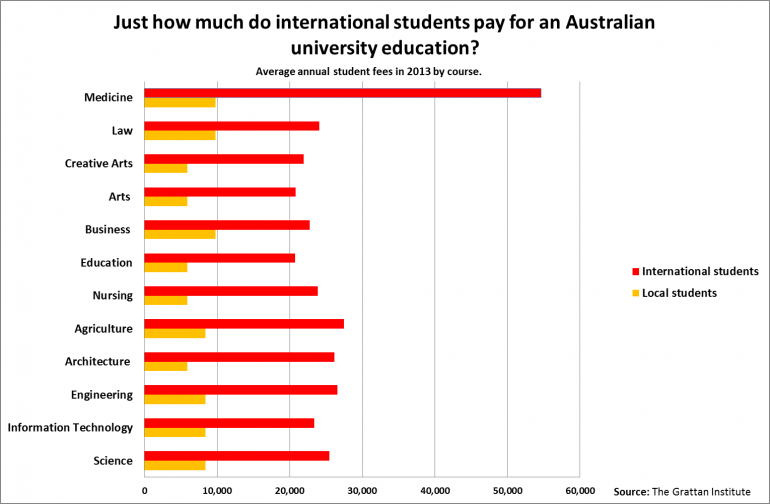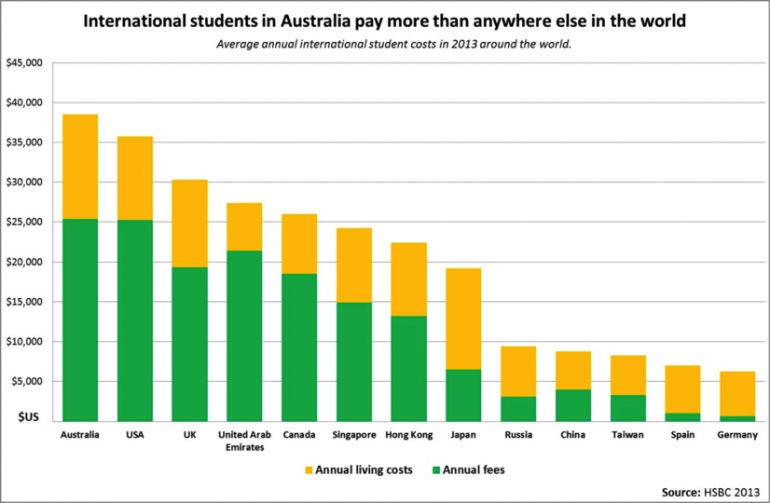Questioning Palmer-topia: Why it's wrong to call for a free university system
Clive Palmer has a knack for political point-scoring, but last Monday it seems he missed the mark.
Jumping off the controversy surrounding the de-regulation of university fees, Palmer reaffirmed to the Queensland Media Club yesterday his party’s policy to abolish higher education fees for all Australians. That’s right: no HECS, no fees, just free education for the every Australian resident.
The idea of ‘free learning’ makes for some great headlines. But in the end somebody has to pay for education.
In Palmer’s world, this leaves two options: wind back the clock and force the government to pay for all degrees or, alternatively, raise the price of international student fees and use the added revenue to subsidise domestic students. Both of these could achieve his aim, but would ultimately end up either burdening taxpayers or hurting international trade.
On international students: given the level of fees they already pay in comparison to their domestic counterparts, it’s clear they already subsidise the higher education system.

Raising international student fees further may prove difficult. As we pointed out earlier this year, Australia already leads the world in terms of our total cost to students.

Further tampering with international student fees jeopardises the revenue Australia reaps through its education system. It’s our fourth largest export next to iron ore, coal and gold. It’s also one of our largest economic ties to China.
Onto that second point: forcing government to subsidise university degrees. The architect of the HECs loan system, ANU professor Bruce Chapman, says that a step in that direction would ultimately be unfair to taxpayers.
The problem, Chapman explains, is that the old system saw the government fund university degrees with no guarantee it would see a return on revenue through graduate income taxes.
Chapman says the HECs system ensures that graduates pay back their degree, but at the same time doesn’t limit access to higher education.
He admits that the reform to a HECs wasn’t popular with university students when it was introduced back in 1989. But over time that opposition gave way to a general acceptance of the policy.
There’s no denying the allure of a completely free higher education system. It’s no wonder why Palmer is campaigning on it. But the issue is complex and it needs to go beyond calls for no fee universities.
Got a question? Contact the reporter @HarrisonPolites on Twitter or let us know in the comments below. Another 10,000 articles and he will have paid off his HECs debt.
















